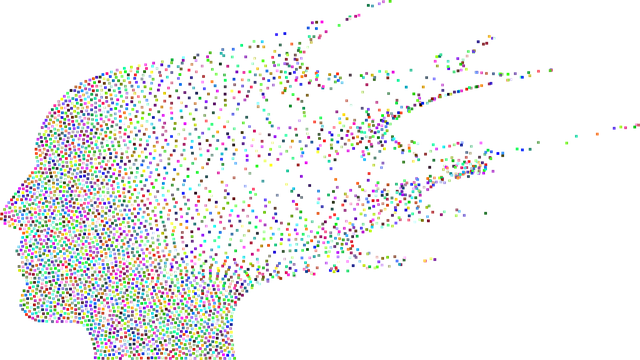Adolescent therapy is a specialized mental health approach tailored to teens' unique challenges like addiction, depression, and behavioral issues. It creates safe spaces for expression, teaches healthier decision-making skills, and navigates development & brain chemistry. Using techniques like CBT, active listening, and empathy, it improves well-being by fostering resilience, coping mechanisms, and healthier relationships. Holistic approaches integrating family and peer support enhance outcomes, with community resources guiding families to appropriate therapy options.
Adolescent therapy, a specialized mental health approach tailored to teens and adolescents, is crucial in addressing unique challenges they face. This article delves into the significance of targeted treatment programs designed specifically for this age group. We explore key components proven effective in helping young individuals overcome mental health issues and substance abuse. Additionally, we provide resources for families seeking expert adolescent therapy services, guiding them through available options and support networks.
- Understanding Adolescent Therapy: A Specialized Approach
- Identifying the Need for Tailored Treatment Programs
- Key Components of Effective Teen Mental Health and Substance Abuse Treatment
- Resources and Support for Families Seeking Adolescent Therapy Services
Understanding Adolescent Therapy: A Specialized Approach

Adolescent therapy is a specialized mental health approach tailored to address the unique challenges and needs of teenagers and adolescents. This age group often faces complex issues, including youth addiction, teen depression, and other behavioral problems, which may differ significantly from those experienced by adults. Therefore, adolescent counseling requires a distinct set of skills and strategies.
The goal of this therapy is to create a safe and supportive environment where teens can explore their emotions, navigate personal struggles, and develop essential coping mechanisms. It involves active listening, empathy, and age-appropriate techniques to engage adolescents in the healing process. By understanding the dynamics of teenage development and brain chemistry, therapists can offer effective interventions for various mental health disorders, fostering healthier decision-making and overall well-being.
Identifying the Need for Tailored Treatment Programs

In the realm of mental health care, recognizing the unique needs of adolescents is paramount. Teenagers and youths often face challenges that differ from those of adults, primarily due to their developmental stage. This includes a heightened risk for substance abuse and co-occurring mental health disorders such as teen depression and anxiety. Adolescent therapy must be designed to address these specific issues, considering the distinct cognitive, emotional, and social factors at play. Identifying the need for tailored treatment programs is crucial in ensuring that youth addiction is effectively managed and treated.
Specialized adolescent counseling recognizes that one-size-fits-all approaches may not resonate with young individuals. By tailoring interventions to their age, cultural backgrounds, and specific struggles (e.g., peer pressure, academic stress), these programs foster better engagement and outcomes. This personalized approach aims to empower adolescents, helping them develop coping mechanisms, enhance resilience, and cultivate a healthier relationship with themselves and others—all vital steps in navigating the complexities of adolescence and promoting long-term well-being.
Key Components of Effective Teen Mental Health and Substance Abuse Treatment

Effective treatment for teenage mental health and substance abuse issues requires a multifaceted approach tailored to this unique demographic. Adolescent therapy should prioritize creating a safe and supportive environment where teens feel understood and respected. This includes employing therapeutic techniques that are age-appropriate, such as cognitive-behavioral therapy (CBT), which has proven successful in addressing depression, anxiety, and other common mental health challenges among adolescents.
Additionally, integrating family involvement and peer support can significantly enhance treatment outcomes. Youth addiction often stems from complex underlying issues within the home or social circle. Adolescent counseling that includes parents or caregivers, along with peer group therapy, not only provides valuable additional perspectives but also creates a sense of community and understanding, fostering healthier decision-making habits among teens.
Resources and Support for Families Seeking Adolescent Therapy Services

When a teenager is struggling with mental health issues or substance abuse, finding the right support and resources can feel overwhelming. However, there are numerous organizations and professionals dedicated to assisting families in navigating these challenges. Many communities offer specialized adolescent therapy services tailored to meet the unique needs of teens dealing with problems like youth addiction, teen depression, and other psychological struggles.
These services often include comprehensive assessments, personalized treatment plans, and ongoing support for both the adolescent and their family. Professional networks, such as local mental health clinics, school counselors, and non-profit organizations, can provide valuable guidance in locating appropriate therapy options. Additionally, online resources offer a starting point to learn about adolescent counseling, its benefits, and available providers in one’s area.
Adolescent therapy, with its specialized approach, is crucial in addressing the unique mental health and substance abuse challenges faced by teenagers. By identifying the need for tailored treatment programs, we can ensure that young individuals receive effective care. Key components include evidence-based therapies, individualization, family involvement, and access to support resources. Understanding these elements enables families to navigate the process confidently, ultimately fostering a healthier future for their adolescents.

